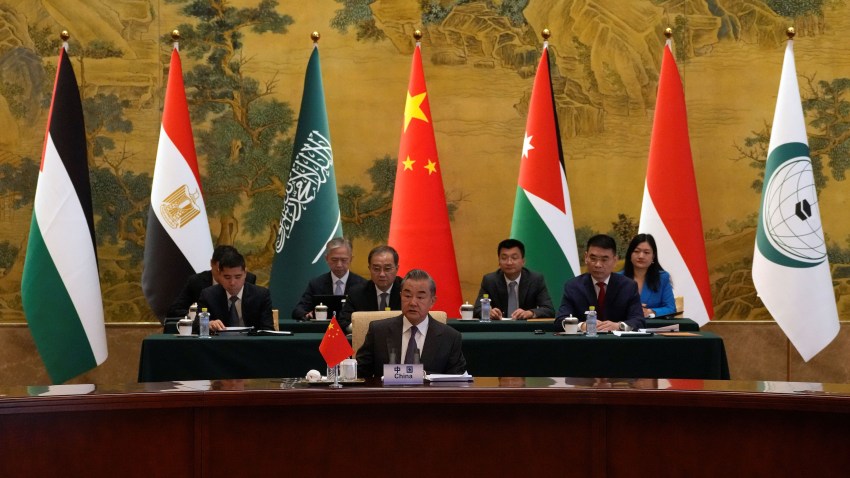Last week, Chinese Foreign Minister Wang Yi presented the United Nations Security Council with a vague four-point plan to resolve the Israel-Palestine conflict, which included a call for Palestinian statehood. That followed a summit on Nov. 20 in Beijing, where a delegation of Arab and Muslim foreign ministers convened to discuss the ongoing war between Israel and Hamas, while calling for an immediate cease-fire. At that gathering, Yi declared that China was a “good friend and brother of Arab and Muslim countries,” adding that Beijing has “always firmly supported the just cause of the Palestinian people to restore their legitimate national rights and interests.”
Both developments have fueled the growing chorus of voices that, in the wake of the war in Gaza, have raised the alarm over China’s alleged desire to use the conflict to fundamentally challenge the U.S. role in the Middle East. Some claim Beijing is trying to “undermine the United States and promote its own global leadership,” while others point toward the recent Beijing summit as evidence of “the growing leadership role that China has sought to play in the Middle East.” Others have even tried to draw a direct link between China’s relationship with Iran and Hamas’ decision to launch its initial attack against Israel on Oct. 7.
However, it would be a mistake to perceive China as anything other than an opportunistic actor in the Middle East. The reality is that Beijing has neither the ability nor the desire to assert itself as the chief powerbroker across the region. Instead, China has sought to capitalize on relatively low-hanging fruit in the wake of the war in Gaza, primarily by criticizing the U.S., while continuing to compartmentalize its regional policies.

